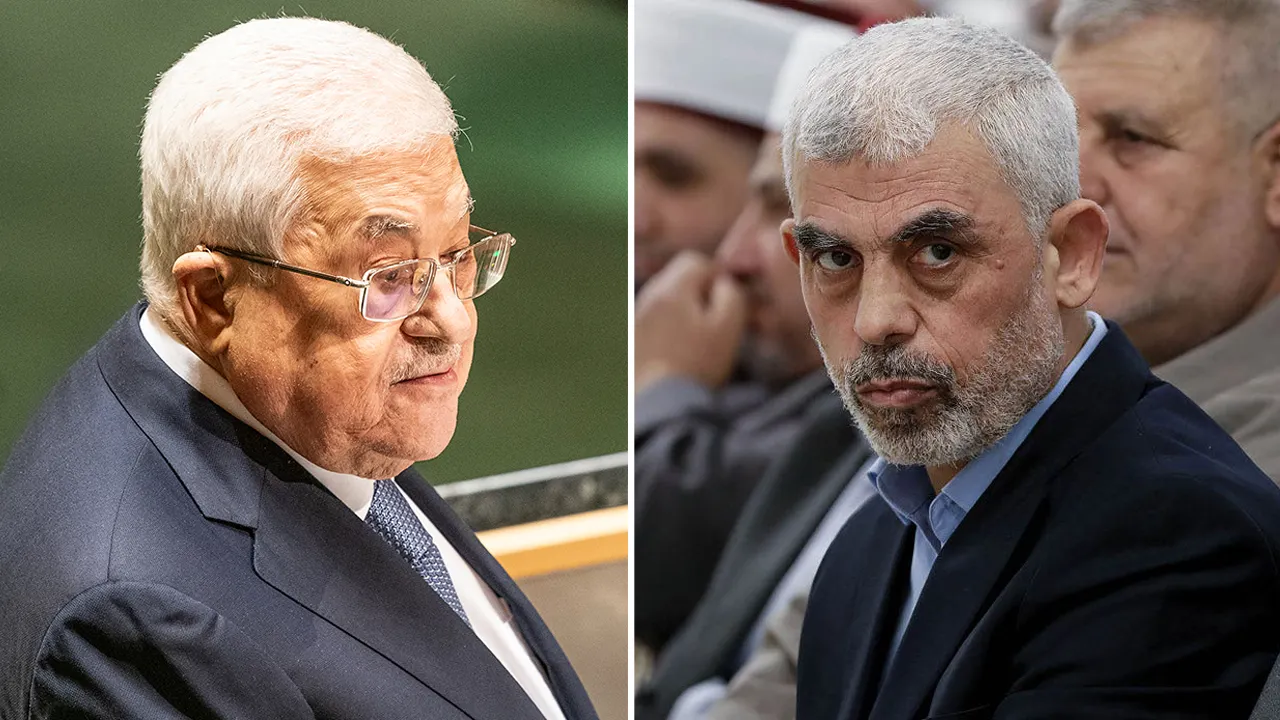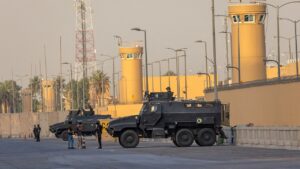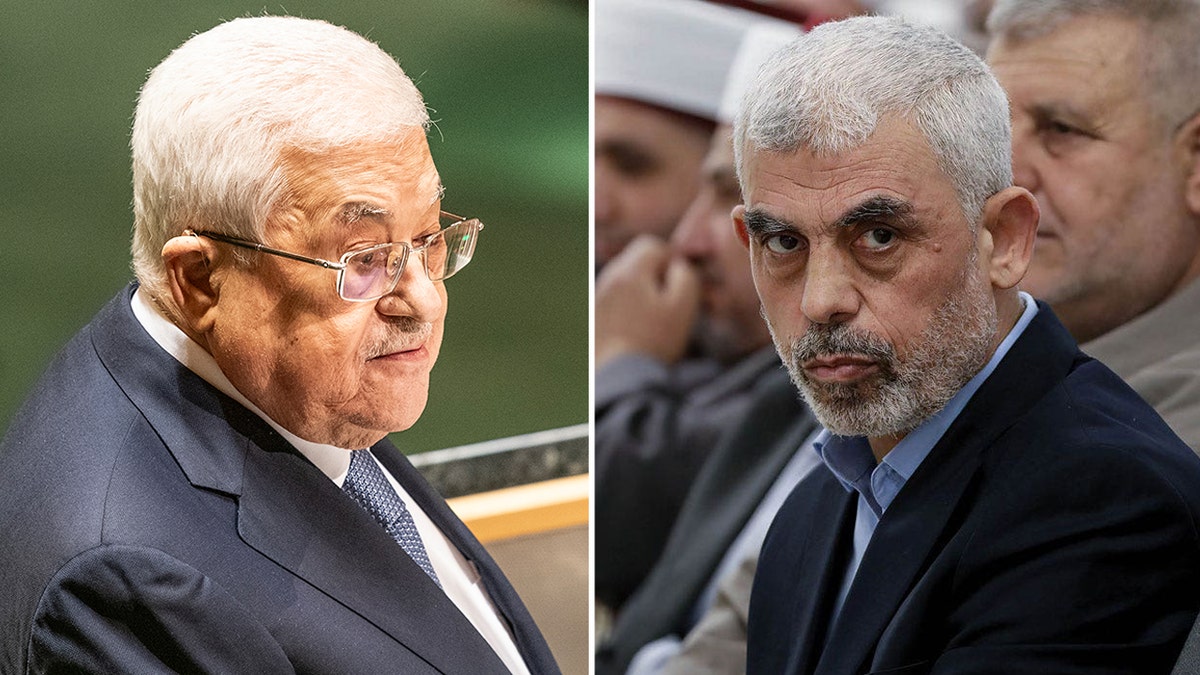
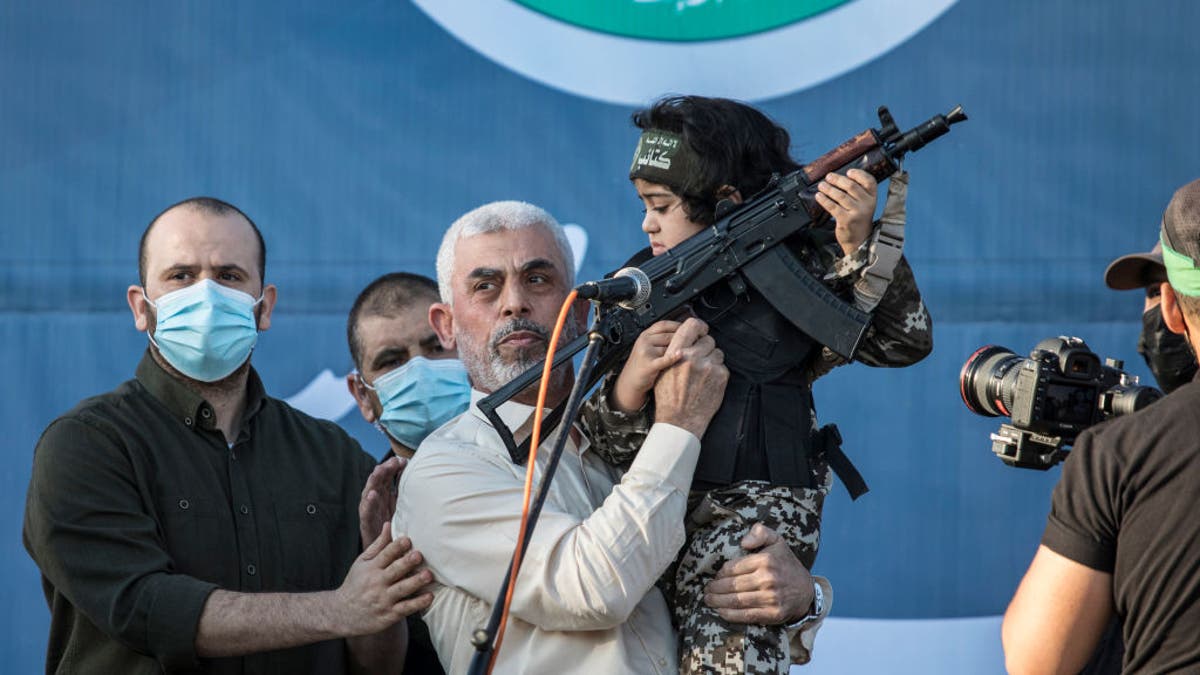
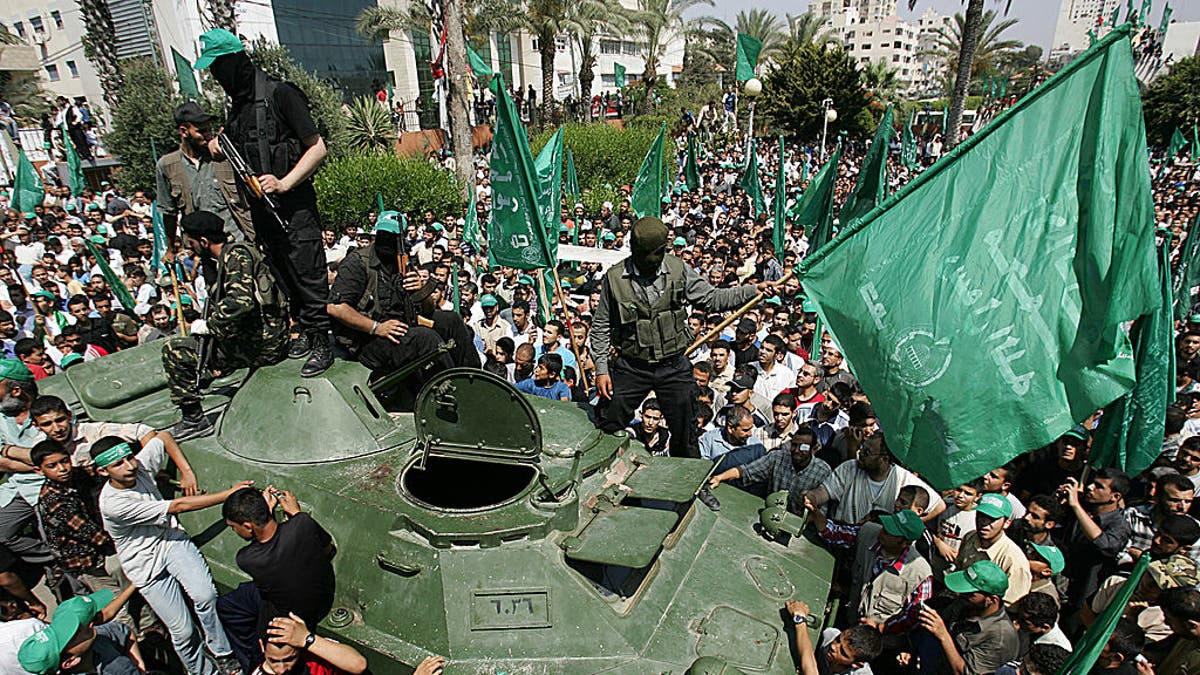

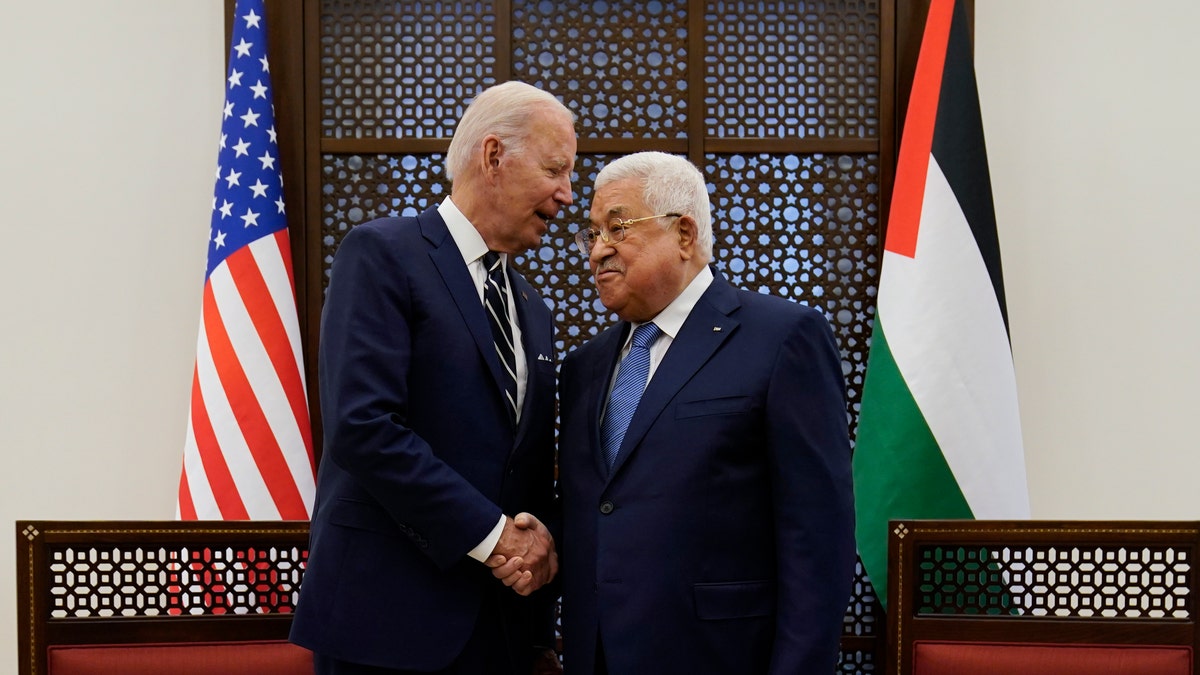
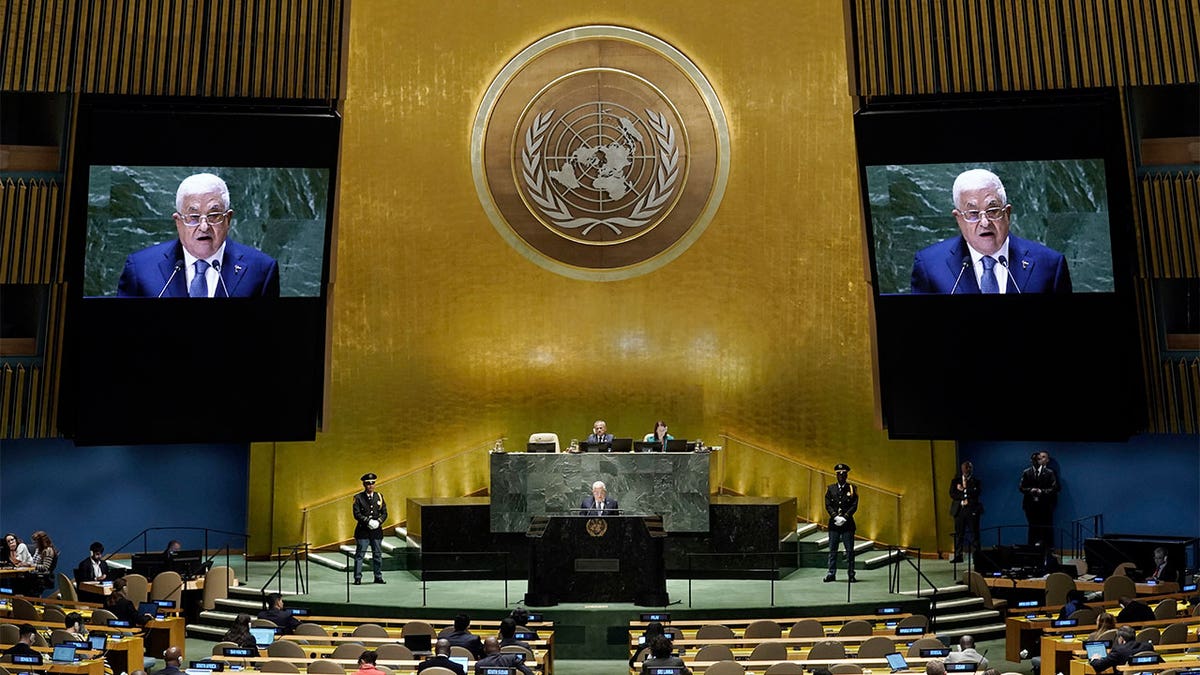
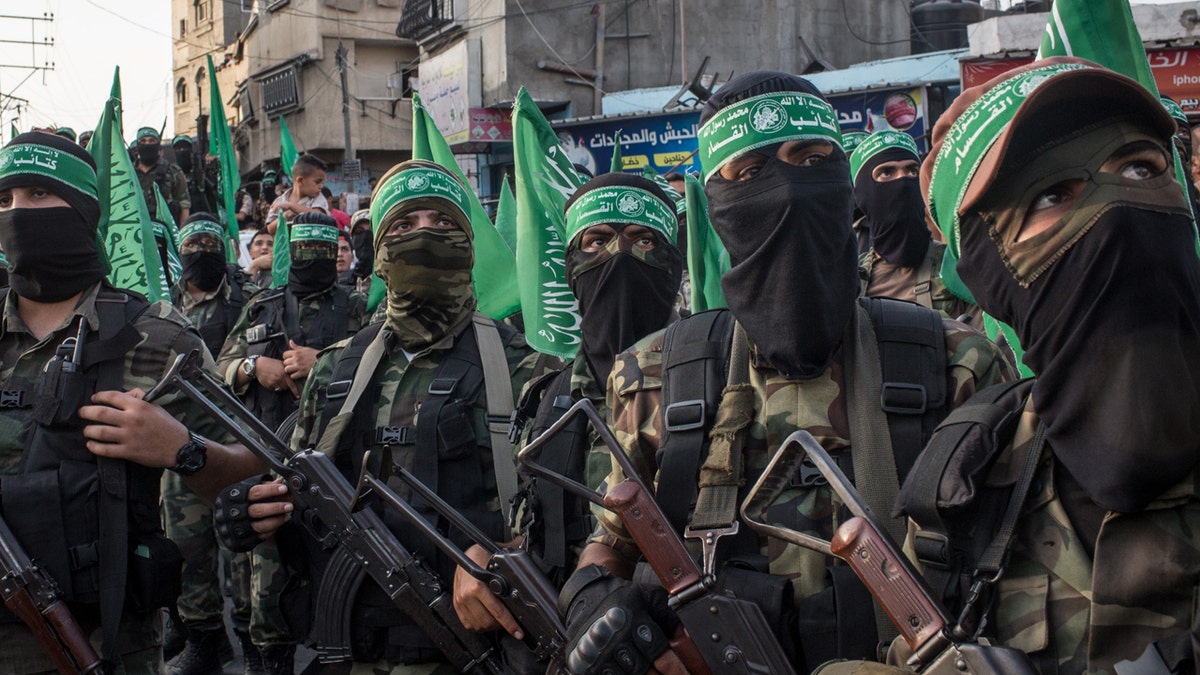
JERUSALEM – Ever since Hamas terrorists carried out a brutal massacre in southern Israel on Oct. 7, President Biden and his White House team have been pushing for a post-war configuration that involves the Palestinian Authority (PA) – the body that governs Palestinians in parts of the West Bank – extending its authority into the now war-ravaged enclave.
In responses as recently as last week, however, Israeli Prime Minister Benjamin Netanyahu has pushed back against such an idea, pointing out that the PA – headed by Mahmoud Abbas and dominated by his political party Fatah – is no different from Hamas, a rival Palestinian faction with an extreme Jihadist ideology whose charter calls for the destruction of the Jewish state.
The differing opinions of the Palestinian body, considered to be the legitimate representatives of the Palestinian people, are stark and could ultimately put Jerusalem and Washington on a collision course when the time comes for implementing future options for Gaza, the West Bank and ultimately Israeli-Palestinian peace.

A split screen image showing Mahmoud Abbas, president of the Palestinian Authority and Hamas leader Yahya Sinwar, right. (Lev Radin/Pacific Press/LightRocket | MAHMUD HAMS/AFP via Getty Images)
“The endgame of both the PA and Hamas is to destroy the State of Israel, and the only real difference between them is how to do this,” Kobi Michael, a senior researcher at the Institute for National Security Studies in Tel Aviv, told Fox News Digital.
While Hamas believes in armed resistance, the PA instead “manipulates the international community with the ideas and the slogans of a two-state solution for Israelis and Palestinians,” said Michael. “When you look closer at the PA’s terminology, however, it refuses to accept that Israel will be a nation-state for the Jews, yet it demands that Palestine will be a state only for Palestinians.”
Established in 1994 as part of the Oslo peace process between Israel and the Palestine Liberation Organization, the PA was meant to gradually take over responsibility for civil functions and security arrangements in the West Bank and the Gaza Strip as Israelis and Palestinians worked together to create two states alongside each other.
However, the authority, which was first led by Yasser Arafat, seemed doomed from the start. Extremist factions such as Hamas refused to accept its goals and actively worked to undermine it. Later, as its popularity among Palestinians grew, Hamas relented and decided to run for parliamentary elections in 2006. Winning the majority of seats in the Palestinian Legislative Council, the Palestinian parliament, sent shock waves through the Palestinian political establishment, and Abbas, who had replaced Arafat as president in 2004 following his death, refused to accept Hamas’ victory. The tension sparked an ongoing feud between the PA and Hamas, with the latter violently seizing power in the Gaza Strip and declaring itself as the governing authority over the 2 million Palestinians living there.
OUTRAGE OVER GERMAN CHANCELLOR’S SILENCE AS PALESTINIAN LEADER SAYS ISRAEL COMMITTED ’50 HOLOCAUSTS’

Yahya Sinwar, center, the elected leader of Hamas, appears during a ceremony for fighters killed by Israeli air strikes at Yarmouk Stadium on May 24, 2021 in Gaza City, Gaza. (Photo by Laurent Van der Stockt/Getty Images)
It was at this stage that the paths of the two Palestinian authorities began to diverge, particularly in the international arena. The PA became the accepted leaders of the Palestinian people and was welcomed in forums such as the United Nations, while Hamas was shunned and even boycotted by most Western governments.
Despite their contrasting reputations, however, Israel – and particularly Netanyahu – maintained that the two Palestinian groups still had one thing in common: an ideology that negates Israel’s right to exist.
“The Palestinian Authority, like Hamas, is an enemy of Israel,” Michael told Fox. “Not only does it support terrorism by paying terrorists who murder Jews; it also glorifies those terrorists by making them national heroes – less than a week after a Palestinian terrorist has been killed there’s a roundabout, or a street, or a school named after him, and his story is added to the Palestinian educational curriculum.”
“The Palestinian Authority’s glorifying of terrorism is poisoning the hearts and the minds and the collective consciousness of Palestinian society,” Michael said.

Palestinian Hamas members ride an armored vehicle seized from Fatah during a celebration rally June 15, 2007 in Gaza City, Gaza Strip. After Hamas effectively took over the Gaza Strip on June 14, 2007, they now control the police and security and will take up positions at the Gaza crossings. (Photo by Abid Katib/Getty Images)
A recent poll carried out by Birzeit University, a Palestinian college on the outskirts of Ramallah, found that some 80% of Palestinians in the West Bank – the area under PA control – supported Hamas’ brutal attack against Israel on Oct. 7. An even greater number viewed the various Palestinian terrorist factions, including Hamas, very positively.
This point was sharpened last month by senior Palestinian Authority official Jibril Rajoub, who currently serves as secretary general of Fatah’s Central Committee. He told journalists at an event in Kuwait that he believed Hamas’ massacre was justified “in the context of the defensive war our people are waging.”
Rjoub, who also heads the Palestinian Soccer Association, explained that Hamas would always “be part of the Palestinian political and national fabric and part of the struggle,” even though his own Fatah Party has refused to engage politically with Hamas for 17 years. He also said that a similar attack against Israelis could quite possibly emanate from the West Bank, the area that is under direct PA control.

Thirty-nine Palestinians, brought by an International Committee of the Red Cross vehicle, reunite with their relatives as they are released from Israeli Ofer prison as a part of a Israel and Hamas prisoner swap amid a humanitarian pause, according to Palestine Liberation Organization’s prisoners in Al Bireh city of Ramallah, West Bank on Nov. 26, 2023. (Photo by Issam Rimawi/Anadolu via Getty Images)
Khaled Abu Toameh, a Palestinian affairs analyst based in Jerusalem, said it was such statements that made Israelis feel the PA was not a true partner for peace and no different from Hamas.
“The anti-Israel rhetoric and incitement, as well as its diplomatic campaign to isolate and delegitimize Israel in the international arena, is just one reason,” Abu Toameh said. “There is also the PA’s failure or even refusal to crack down on armed Palestinian groups in the West Bank, such as Hamas, and even the PA security forces’ involvement in attacks against Israelis in the past.”
However, Ghaith Al-Omari, a senior fellow at The Washington Institute for Near East Policy, told Fox News Digital that there were fundamental differences between the two.
“Hamas is an organization that is ideologically committed to the destruction of Israel using terror – as we saw on Oct. 7 – with the ultimate objective of establishing a theocratic government from the River Jordan to the Mediterranean Sea,” he said. “The PA seeks the establishment of a secular Palestinian state alongside Israel using diplomacy.”
Al-Omari explained that “the failure of the Palestinian-Israeli peace process, along with chronic corruption and poor governance have rendered the PA weak and discredited, which has contributed to Hamas’ rise.”

Palestinian President Mahmoud Abbas, right, and President Biden shake hands in the West Bank town of Bethlehem, Friday, July 15, 2022. (AP Photo/Evan Vucci)
He echoed sentiments expressed recently by President Biden and Secretary of State Antony Blinken, that for the PA to survive and even thrive following the war in Gaza, it needed to be revitalized and rehabilitated.
PALESTINIAN PRESIDENT, IN FRONT OF PUTIN, RULES OUT US AS MIDEAST PEACE MEDIATOR DURING SPEECH
Michael Milshtein, head of the Palestinian Studies Forum at the Dayan Center at Tel Aviv University, agreed that there were broad differences between the PA and Hamas but added that, in essence, “the PA is a very, very, very problematic partner for Israel.”
“While Hamas’ main goal is to eradicate Israel from the map, and they will never be ready to discuss mutual recognition with you, the PA is still willing to discuss a political settlement with Israel and quite a stable one,” he said, adding, however, that the PA should in no way be viewed as a left-wing organization that supports peace and coexistence, just as the “least bad option compared to Hamas.”
“The problem with this entity lies in its education system where young people are formally educated that Israel is the enemy,” Milshtein said, giving the example of official PA schoolbooks that do not include maps of Israel.

Palestinian President Mahmoud Abbas addresses the 78th session of the United Nations General Assembly on Thursday, Sept. 21, 2023. (AP Photo/Richard Drew)
“They only speak about Israel as a demonic entity, and this is a very negative phenomenon that must be changed,” he added. “You cannot allow this kind of authority to educate the young generation of Palestinians for peace.”
David Makovsky, director of the Koret Project on Arab-Israel Relations at The Washington Institute for Near East Policy, said while he too recognized the problems, it was wrong to lump the PA and Hamas together.
“You need to drill down and ask what Israel’s legitimate concerns about the PA are,” he said. “Is the PA annoying? Yes. Have they condemned Oct. 7? No. In addition, the speeches of Abbas have sometimes been outrageous, but there needs to be some context in that Israel and the PA have worked very well together for nearly 30 years.”
Makovsky pointed out that much of the cooperation, including in security, economic, and civil matters, happens behind the scenes, so no one on either side sees it happening.

Palestinian Hamas terrorists are seen during a military show in the Bani Suheila district on July 20, 2017 in Gaza City, Gaza. (Chris McGrath/Getty Images)
CLICK HERE TO GET THE FOX NEWS APP
“There is also the difference that the PA is willing to negotiate for peace along the 1967 borders, while Hamas says its goal is the pre-1948 borders, which means no Israel at all,” he said, adding that another difference is that hundreds of Israelis who mistakenly enter Palestinian territory each year are returned to Israel by the PA security forces, while Hamas is actively looking for Israelis to kidnap – as happened on Oct. 7 – in exchange for its security prisoners.
“I think if you asked Israel’s security establishment, they would advocate for the PA, their view is that coordination with the PA is in Israel’s interest, and they do remain a counterweight to Hamas,” said Makovsky. “Israel could never work with Hamas but it can work with the PA,” he claimed.
Ruth Marks Eglash is a veteran journalist based in Jerusalem, Israel. She reports and covers the Middle East and Europe. Originally from the U.K, she has also freelanced for numerous news outlets. Ruth can be followed on Twitter @reglash
[ad_2]
Source link

